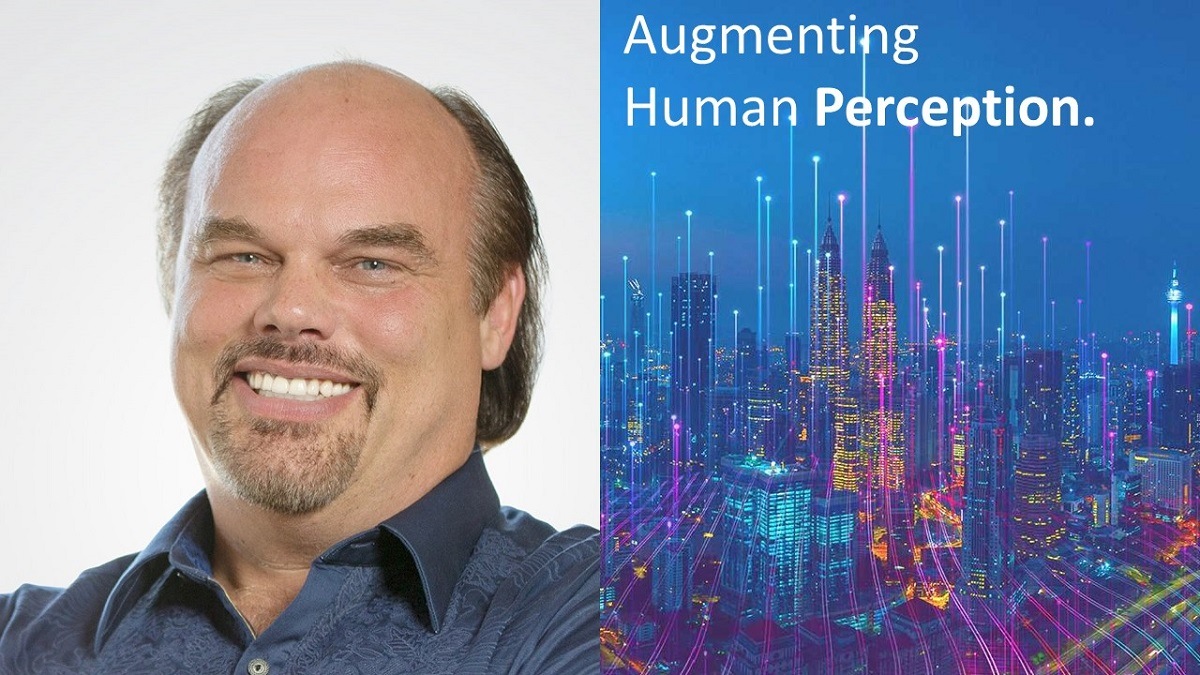With the onset of the Coronavirus, the advertising, marketing and production communities have been turned upside down. Brands are now forced to react to the idea that we are all in this together and use their content to create powerful online connections that truly matter to their target audience.
Our interview with Dave Copps, CEO and Co-Founder at Worlds, a Dallas-based Artificial Intelligence company, reveals that marketing has made a 180 degree flip from mostly outbound marketing to interacting directly with the consumer. AI can be seen as a superpower used to understand people and their buying behaviors, analyzing thousands of consumers with similar characteristics. It begins with the “story of me”- an individual, and transitions to the “story of many” – interpreting common likes and traits, and finally culminates in “the story of all of us” – with AI helping to figure out what each market cares about.
It’s a fun and fascinating read that includes topics beyond advertising and marketing! Take a few minutes to check it out.
AdChat DFW: Explain to somebody what artificial intelligence (AI) is.
Dave Copps: AI is really the science of teaching machines to think and learn like we do, but at a scale and at an acceleration that is not humanly possible. AI is an apex technology that sits at the base of overlapping revolutions. Whether it’s the biomedical revolution with CRISPR or robotics or nano technology the convergence with AI is causing an acceleration of overlapping revolutions. We cannot over emphasize the importance of AI. It is not only affecting us in our daily lives today, but AI will start to influence global governance, national economies and even warfare or, more importantly, world peace.
AdChat DFW: Wow! Let’s talk about your company, Worlds. You have different AI products for training and modeling. In simple terms, what do your products do for your clients?
Dave Copps: Worlds is creating an AI platform that gives companies the ability to see and sense their physical worlds through the lens of AI. We’re enabling companies to measure, analyze and learn from their physical environments in the same ways that companies like Google and Facebook learn, analyze and measure their virtual environments. Essentially, we’re combining artificial intelligence with IOT (Internet of Things) like cameras and other sensors and re-expressing what we see inside of a 3D model. It’s almost like visualizing real life, like a video game. What is captured in 2D is re-expressed in a 3D model in about 5 seconds.
AdChat DFW: What are some of your use cases?
David Copps: All of our use cases involve using AI-based automation to lower costs and increase productivity, safety and efficiency. Some of the use cases out of the gate are safety, security and logistics. We’re helping companies create safer work environments.
For instance, energy companies with large equipment tend to have injuries and even deaths as a result of improper or unauthorized use of large equipment. We provide them with an AI that can watch an environment and understand when there’s an unsafe behavior happening and then take an action such as sounding an alarm, buzzing a phone or calling the supervisor.
When it comes to logistics we are actually creating environments that, in and of themselves, are smart. For example, you could have a drone, as it is moving cargo around, communicating with a warehouse in a machine to machine manner making choices on where to unload a refrigerated container for example. The drone queries the warehouse and the warehouse responds with, “Bay number 18 is a reefer bay and it is unoccupied”. The AI in conjunction with cameras and other sensors can sense the state of things, like if a bay is occupied or unoccupied. All that is happening without human intervention.
AdChat DFW: What is a good example of how a company changed what they were doing and were more efficient or safe?
Dave Copps: The energy companies on their rigs they have people in a crow’s nest to watch behavior. Unfortunately, people are flawed, they text or don’t pay attention. We place an AI layer on top of the environment that we have re-expressed as a 3D Model and the AI’s look for important events that need to be addressed like unsafe behavior, or theft or inefficiencies that increase costs. Think of the AI’s as virtual employees that let you know when you need to pay attention. Most companies we are talking to already have cameras and sensors in place. The problem is that they are not connected to machine learning and AI, but rather just producing more data and not actively learning or predicting when important things are happening. The models themselves also enable us to do things that can’t be done in the physical world-like set zones. If a person who’s wearing a white hat is not trained to be in a certain area and enters that area, the AI can say, “Hey, there’s a person in a white hat entering an area they’re not trained to be in,” and then sounds an alarm or send a text or call a supervisor.
It also gives companies the ability to see things that you can’t see with the human eye. Sometimes a crane will be placing cargo on the other side of a large obstacle that obstructs the operators view. With cameras and AI, we can give the operator a screen that essentially enables him or her to see through the large obstacle.
AdChat DFW: Is there a monitoring screen that the person using your product can watch in real time?
Dave Copps: That’s right. It’s almost like giving people a superpower to see through walls or obstacles. On the screen the obstacles are ghosted and it’s all made possible by combining the data generated by IoT sensors with the learning and predictive powers of AI..
Also, we have a fun deal we’re working on in Las Vegas right now using AI to understand gameplay, like Blackjack. We are creating an environment where SpatialSense can actually recognize, count and value chip stacks, read cards and understand what’s happening in the game.
AdChat DFW: I bet they’d love that, pun intended. How is your company marketing? I assume you’re not just here in the States.
Dave Copps: Worlds is really new. We have some proof of concepts happening right now with some of the largest companies in the world, actually. Typically, we market initially though PR. Our technology is fascinating and futuristic, so it tends to generate quite a bit of buzz. We are employing a penetrate and radiate strategy, where we are focusing initially in Energy and DoD, but very soon will be radiating outward towards other markets including Retail and Entertainment, Logistics, Manufacturing and Supply Chain. Essentially any market that is looking to lower costs and increase efficiency by employing higher levels of AI-based automation.
AdChat DFW: Could marketers and advertising agencies use your product?
Dave Copps: Absolutely! The whole advertising and marketing world is undergoing a transformational change right now and the Apex technology causing that change is AI. It used to be that you would put an ad out and measure the response to that ad, usually around 6 or 7 percent. Now, with AI, we’re starting to create this superpower to understand people and their buying behaviors in ways that were never possible before. It’s less about putting out an ad and waiting to see what the response is as it is about marketing directly to the people that you know will have an interest in buying it. In a way, marketing has flipped 180 degrees. It used to be about broadly approaching the market and looking at how to attract the most people on the market. Today, every person is a market of one and with AI we can approach every individual as a unique sale.
AdChat DFW: How are you using AI to understand people and their behaviors?
Dave Copps: It starts on a broader level where an AI analyzes say a thousand people with similar characteristics, like gender, age and location. With AI, if I have a thousand people that are kind of like you, I can actually start to tell you what you’re going to be interested in before you know you’re interested in it. Humans are not snowflakes. We all think we’re snowflakes, but we’re just not. We are animals with habits that form predictable patterns in everything we do. If you have any doubt about that just look what you do every morning when you wake up and see if it varies too much from the day to day. These behavioral patterns make it fairly easy for an AI over time to be able to understand the patterns that guide my interests. I have this theory called “the story of me.” Essentially, this is what happens when you go to Amazon and you buy three or four things. The narrow AI’s learn from your buying patterns and start suggesting other things that fit your “story of me.” It’s a little bit of a tunnel vision, and by itself it’s myopic. The next thing is “the story of many me’s.” This is when an AI goes beyond analyzing just your buying patterns and combines the buying behaviors of thousands to millions of other people like you. The last thing is we look at is the population as a whole – the “story of all of us,” and look for patterns that might be worth learning and applying to other buyers. An example might be a restaurant monitoring the Twitter feeds of similar restaurants and see surfacing trends like new drinks or entrees and then apply what you learn from that story to your customers. This constant poking and prodding of data with AI helps us understand people’s interests by direct interacting with them as opposed to trying to go out and do a market survey. With AI watching, the entire market becomes your market survey.
AdChat DFW: That’s fascinating that AI can do that because you have to be able to figure out what they really care about.
Dave Copps: That’s right. It does create kind of an interesting topic, right? And what people think about initially when I make a statement like that is, what about privacy? Every day we’re sacrificing privacy for convenience. We all do it every day. You’ll answer a question about what you like or don’t like if the answer might help them serve you better. Privacy for convenience – we’re always making that trade-off.
What’s happening with the rise of AI is that we are going to have to redefine what privacy means today. Even with healthcare, If I become sick and I don’t allow anyone to see my data, then the next person with my illness won’t be helped at all. There are ways to anonymously share data, even health data, such that we can help each other. It’s less important, but even in e-commerce, sharing data about our buying patterns makes buying a more enjoyable experience for people. If I share a little bit about my behaviors and other people do the same then we create an environment where finding the things that we want, need or desire, becomes easier and more enjoyable. It’s a trade-off with a payoff.
AdChat DFW: Could the medical industry utilize your platform for research about COVID-19?
Dave Copps: We’re doing something right now in Medical around COVID testing. What we’re learning is that the diagnosis of this virus is a data science problem. We’re actually creating a breath test so people can breathe into a device and an AI analyzes the volatile organic compounds captured in your breath. What we’re finding now is that the biomarkers in one’s breath cannot only help us diagnose COVID, but numerous other diseases as well. When a person is newly infected or maybe they’re asymptomatic, and don’t know they have it yet, there are certain biomarkers. Then as someone moves further into the infection, they may display different markers. We think it is possible to use data science to make asymptomatic detections when someone doesn’t even know that they have COVID. It’s important to know the stage of an infection because we’re finding out that if you oxygenate people early you can mute the disease by kind of cutting it off at the path.
The problem with the people who ended up being hospitalized is they’re not able to absorb enough oxygen and their lungs have started to shut down. With AI and machine learning we can begin to understand COVID-19, make early detections not only with a single person, but early detection of community spread or even a new virus that may be in the early stage of spread. Remember how people used to watch Google queries to understand where the flu was spreading. It’s the same kind of thing with Worlds PROTECT. I think machine learning and AI are going to help us in multiple ways with not just COVID but any new virus – the next COVID that rises going forward.
AdChat DFW: Especially because people get affected differently. A healthy individual can be taken down, but then others barely have any symptoms.
Dave Copps: What we’re seeing is that the strains, especially down in the South here, seem to be a different strain from what they had in New York. It’s not as virulent or deadly, but it’s way more contagious. That doesn’t make it better, obviously.
AdChat DFW: One last question, and this is the big one. It’s clear that long-term AI is going to change the world for the average person, but do you think it could replace human creativity?
Dave Copps: AI is not biochemical, like our brains. At a fundamental level AI is very different than the human brain. There are things that we can’t measure in our brain like we can in AI. As a general rule, I’ll say, I don’t know that we’ll ever have AI that can replace what humans can do, but I will say it doesn’t have to, it just has to mimic the things that we hold dear, like caring or showing love. I was talking to the gentleman who created a Texas Hold’em AI, and he made the claim that it learned how to bluff. I challenged him and said that it didn’t bluff, but that it mimicked bluffing, and he agreed. Bluffing is me looking at you and seeing if your heart rate is changing, or if your eyes are moving in different direction.
There’s a new AI method called Generative Adversarial Networks, which can challenge creativity. You feed it a lot of information about building cars and ask it to build a car. A particular use case is really interesting where they put a collection of sensors on jumping cars, flying cars basically, and 40 million data points later, they asked the AI to create a car frame for a flying car and it came back looking incredibly like a pelvis of a flying squirrel. And this is without any human intervention. Now we have AI building bridges without us telling it how to do it.
We have made some incredible breakthroughs and we’ll start to see AI doing things that seem like they’re being creative, being understanding and caring, but for the next several years, it would be mimicking those things, not actually doing that. Sharing is something that you can’t define, you can’t run an algorithm to care.
AdChat DFW: Well, if you have an AI that sounds like it’s caring for your aging grandmother, maybe it’s the next best thing.
Dave Copps: Exactly. Right. Like if it can mimic well enough, maybe that’s good enough, you know? I’m incredibly positive about our future with AI. I think we’re looking at a world that doesn’t have disease or poverty and the distribution of food and water will be solved. Poverty, starvation, all of these things are solvable problems with AI. We have the potential to create a truly kind of automagical world if we keep the focus on the right things, you know? Keeping ourselves focused on AI for good.
AdChat DFW: Well, what happens when the evil empire comes in to use it for bad?
Dave Copps: That’s always the case. Nuclear can be used for power or for weapons and guns can be used to protect or to kill people. We just have to be more committed to practicing AI for good. I think that the potential for good with AI far outweighs the potential for bad, and we can transform the world by combining AI with other exponential technologies. AI is forming a strong base in nanotechnology, biomedicine. I’m incredibly excited about it. Call me the utopian, not a dystopian when it comes to AI.










